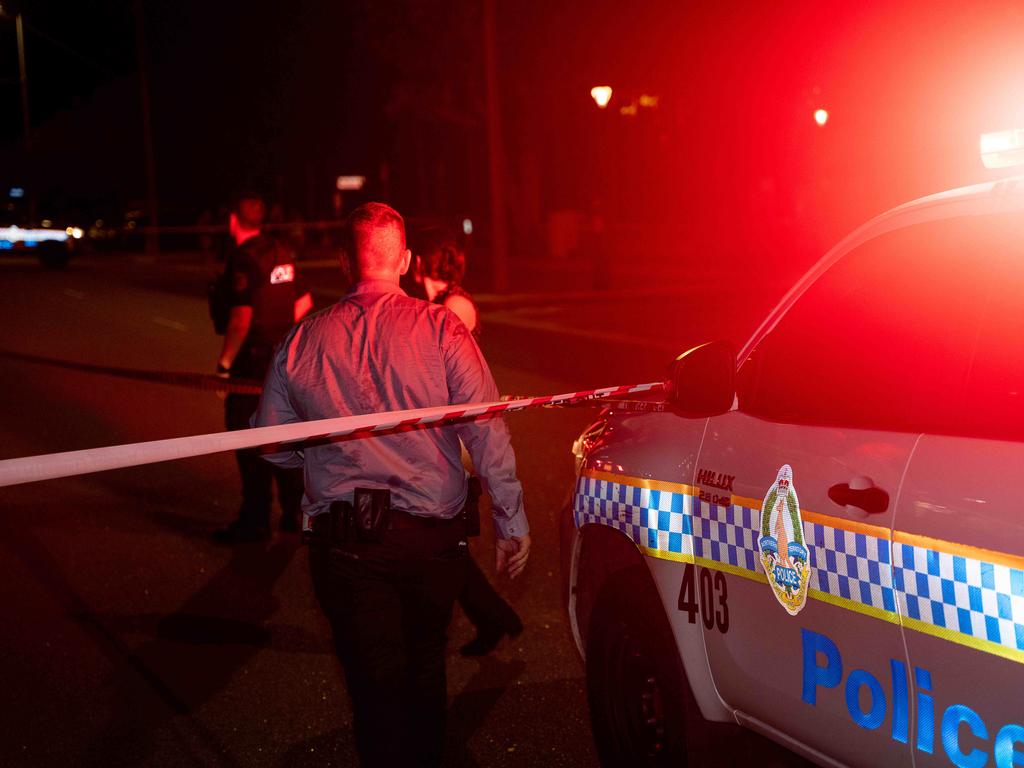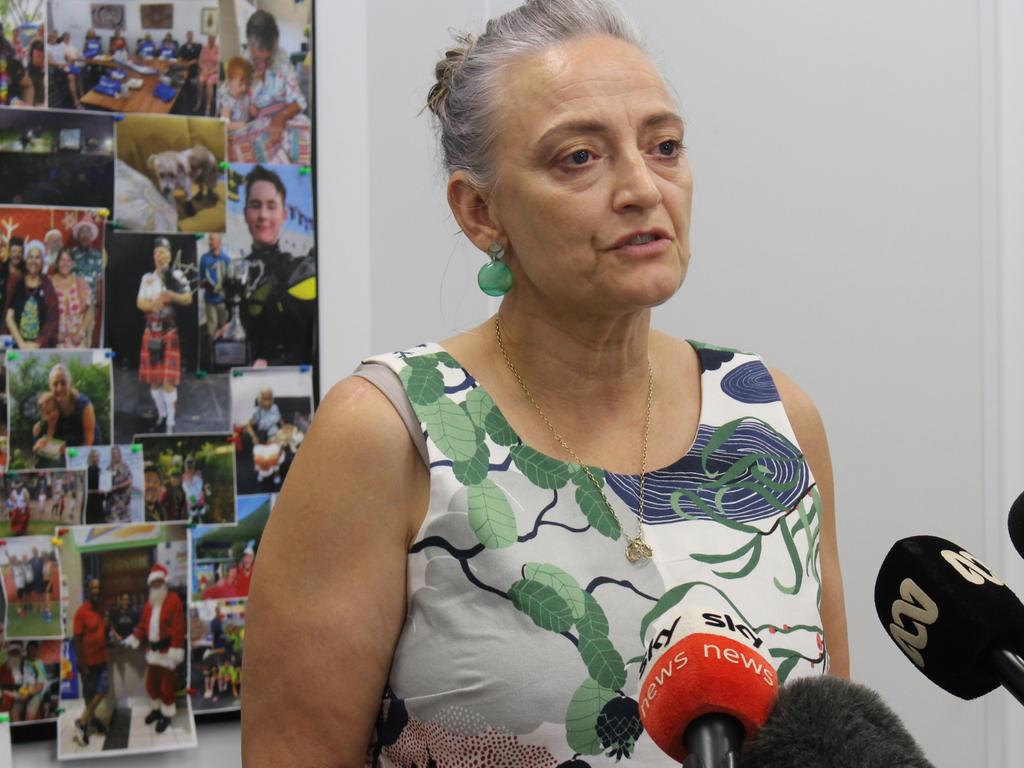So much pain behind loving mum Elaine Naroldol’s smile
The grieving family of the Darwin artist allegedly stabbed to death by her husband say they still love the man accused of her murder.
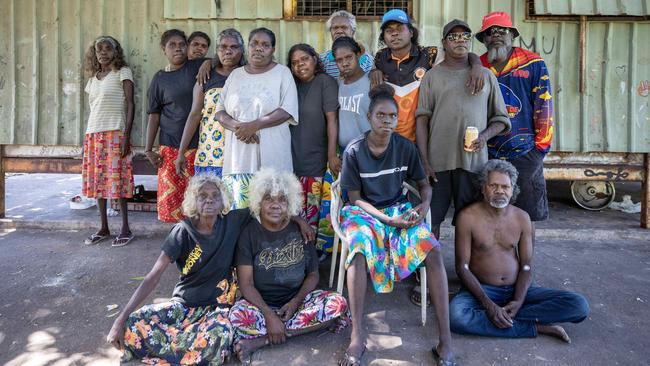
The grieving family of the Darwin artist allegedly stabbed to death by her husband say they still love the man accused of her murder.
Relatives of Elaine Naroldol have spoken for the first time since the 51-year-old was allegedly stabbed to death by her husband, Dennis Naroldol, outside a hotel in Darwin.
The killing appeared to mark another chapter in the wave of domestic violence that has swept the Northern Territory, a tragedy described by Labor senator Malarndirri McCarthy as “terrible”.
“It’s a reminder of the violence women suffer every week,” Senator McCarthy said.
The attack gained national attention in part because the critically injured Ms Naroldol was helped by the staff of Indigenous Australians Minister Linda Burney after walking into the Hilton Esplanade, Darwin, following the alleged attack. Ms Burney comforted Ms Naroldol’s eldest daughter, Rayna Garlnearr, and other relatives as hotel workers desperately tried to save her, but she died later in hospital.
On Tuesday, Ms Garlnearr remembered her mother as a woman who “loves lots of people, and loved laughing”.
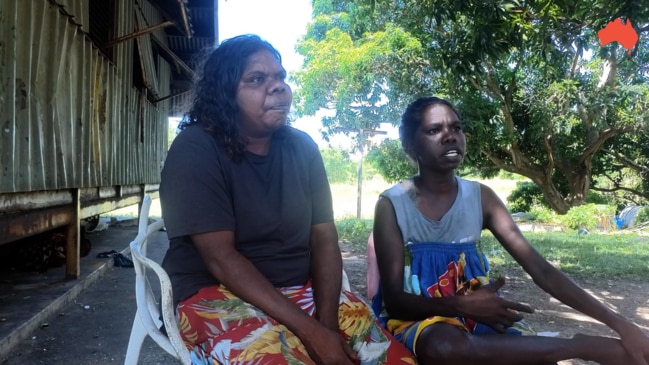
Ms Garlnearr gave The Australian permission to publish her mother’s photograph, a picture from her artist profile showing her with a big beaming smile. That’s the way the family want Elaine to be remembered, she said.
As she looked at the photo on an iPhone, Ms Garlnearr leaned into the screen and kissed it. Other relatives gathered around, wanting to see the picture.
“Look at that smile, look at that smile,” one said, holding Ms Garlnearr’s hand. “She’s a happy woman, she’s a good lady, she loves every person.”
But the family isn’t trying to hide the hurt behind Ms Naroldol’s infectious smile. The artist and basket weaver “had a problem with drinking” they say.
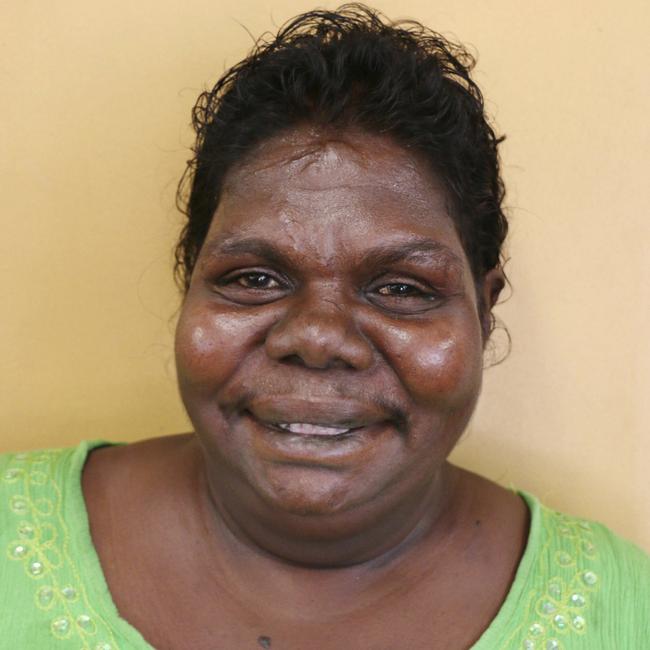
Ms Naroldol was a traditional owner of Maningrida, an Aboriginal community in Arnhem Land about 500km east of Darwin.
But she and her husband had been “long grassing” – sleeping rough – around Cullen Bay, a Darwin suburb, for much of the past three years.
“Everybody who comes into town, it’s because they have a problem back home”, Ms Naroldol’s cousin Joey said.
But the mother of five was determined to help her children and had held down a second job in a credit union. The “fantastic artist with an exceptionally fine line” would paint the Rainbow Serpent, Mimi Spirits, and hollow log, often with her husband.
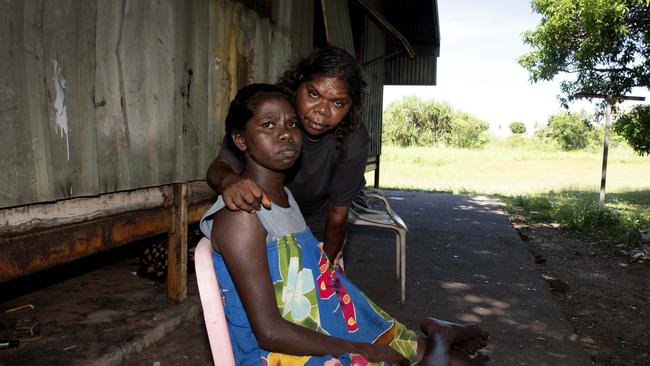
Ms Garlnearr’s stepfather, Dennis Malambula Naroldol, 56, appeared in court for the first time on Monday morning, accused of murdering his wife. He wore an orange prison-issue jumper and white thongs. He was silent through the proceedings and did not apply for bail.
Mr Naroldol joins a long and growing list of men accused of serious domestic violence in the Northern Territory, with one expert saying that type of offending across the territory is “getting much worse”.
Ms Garlnearr and her cousin, Ms Naroldol’s niece, Shianne Davis, reminisced on how the much-loved artist would cook and feed the homeless of Darwin.
“She used to cook and feed all the homeless people, and help our friends,” Ms Davis said.
“Sometimes she goes at the Coles to buy food like fish to bring back,” Ms Garlnearr said.
“She would cook steak, sausage, chicken, everything,” Ms Davis said. “She used to feed everybody, pretty good food.”
“She’s happy, like smile happy,” her daughter said.
Ms Garlnearr said she was constantly reliving the trauma of Friday night through nightmares and still can’t understand why her mother died, allegedly at the hands of her stepfather.
“We’ve got love for him,” Ms Davis said. Susan Crane, executive officer of House of Dawn, which provides services to women and children escaping domestic and family violence, told The Australian domestic violence was now endemic in the territory.
“Indigenous women up here are 39 times more likely to experience domestic and family violence,” she said.
“There are lots and lots of statistics that show the over-representation of Indigenous women experiencing domestic and family violence in the Northern Territory, and it’s a lot higher than anywhere else in Australia.”


